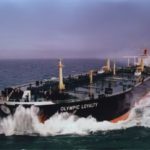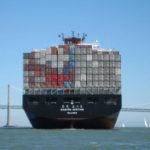The Digital Age of Shipping is Here — The IMO Mandatory Electronic Information Exchange is Now in Effect

The International Maritime Organization (“IMO”) Convention on Facilitation of International Maritime Traffic (the “FAL Convention”) was adopted in 1965 for the purpose of implementing a more streamlined logistics process for the transport of passengers, ships, and cargo in international trade. The FAL Convention has 121 Contracting Governments. The FAL Convention was adopted by maritime Contracting Governments, in part, as a response to increasing local requirements of maritime nations that created a burden on the shipping industry. The IMO’s stated objective underlying the FAL Convention’s was to avoid marine traffic delays, stimulate intergovernmental cooperation, and increase uniformity in the international maritime industry to the extent practicable. The convention contains standards and recommended practices to create efficiency in documentary requirements for ships.
The 2016 Amendments to revised Annex of the FAL Convention entered into force on January 1, 2019. The Amendments include new requirements for the digital exchange of shipping information. Effective April 8, 2019, the FAL Convention now requires Contracting Governments to establish a protocol for an electronic information exchange between ships and ports. The IMO Secretary-General Kitack Lim announced:
The new FAL Convention requirement for all Public Authorities to establishsystems for the electronic exchange of information related to maritime transport marks a significant move in the maritime industry and ports toward a digital maritime world, reducing the administrative burden and increasing the efficiency of the maritime trade and transport.
The grace period for governmental compliance with the digital exchange requirements is a minimum of 12 months. In addition, the Amendments introduce three additional documents that shore authorities may require of arriving vessels. These documents include (1) security-related information pursuant to SOLAS regulation XI-2/9.2.2; (2) advance cargo information for customs review; and (3) Advanced Notification Forms for Waste Delivery to Port Reception Facilities.
The IMO, through the FAL Committee, has developed standardized documents that are recommended for use by all Contracting Governments. The FAL Convention in Standard 2.1 contains a list of documents that public port authorities and governments of member states will demand from ships. To that end, the IMO has developed standardized forms for certain categories of documents including (1) IMO General Declaration; (2) Cargo Declaration; (3) Ship’s Stores Declaration; (4) Crew’s Effects Declaration; (5) Crew List — Passenger List; and (6) Dangerous Goods. All Contracting Governments are encouraged to adjust their local laws to comply with the FAL Convention requirements for sharing electronic information.
According to the IMO, the FAL Convention “encourages the use of a Single Window for data” to be provided by ships to local governments. Id. The primary purpose underlying the new protocol is to funnel all critical information that is required by public authorities relating to the arrival, berthing, and departures of ships, as well as all data required to carry cargo and allow the entry and departure of passengers through a single portal. The Single Window requirement is intended to house all necessary information for the international carriage of goods and passengers into one spot, thus avoiding duplication. The Single Window requirement to provide electronic information is an important international step toward simplifying international voyages for the maritime trade.
The FAL Committee of the IMO is continuing to study potential harmonization of electronic messages. Phase one of the IMO Compendium on Facilitation and Electronic business should be completed soon. Moreover, the revised Guidelines for setting up a single window system in maritime transport are expected to be approved soon. Ultimately, the new FAL Convention electronic requirements are expected to improve uniformity for marine transportation.
Source: Lane Powell

 Hellenic Shipping News Worldwide Hellenic Shipping News Worldwide, Online Daily Newspaper on Hellenic and International Shipping
Hellenic Shipping News Worldwide Hellenic Shipping News Worldwide, Online Daily Newspaper on Hellenic and International Shipping






















 PG-Software
PG-Software